Will the Success of ‘Logan’ Save the Western Genre?
Logan sees Hugh Jackman’s time as Wolverine come to an end, and fans can’t seem to stop gushing over his gory final offering.
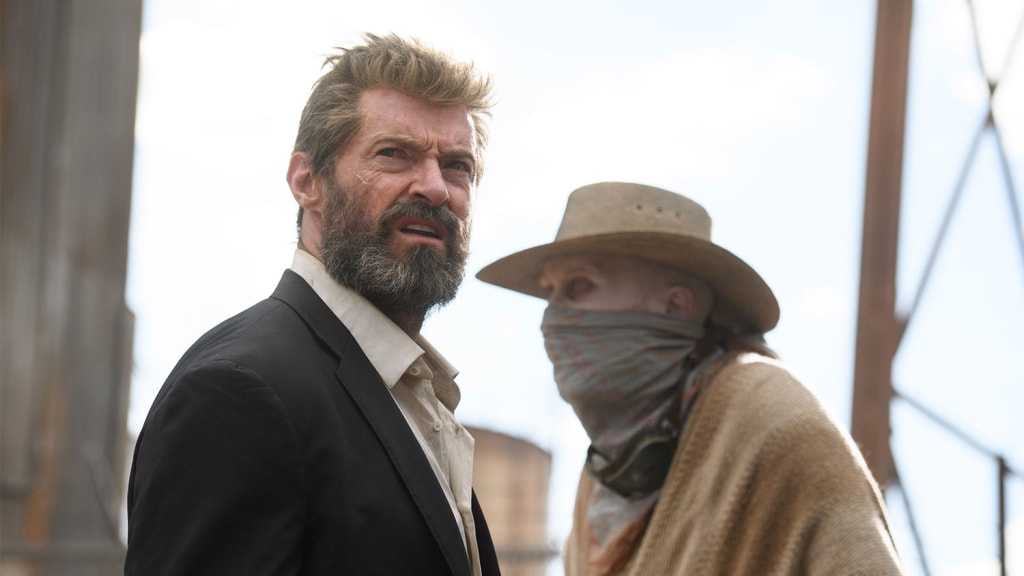
Logan sees Hugh Jackman’s time as Wolverine come to an end, and fans can’t seem to stop gushing over his gory final offering. Telling the story of a dark future where mutants are extinct, Logan features a world-weary Wolverine (Hugh Jackman) caring for an ailing Professor X (Patrick Stewart), until a young and mysterious mutant (Dafne Keen) arrives and throws their retirement into disorder.
The movie may be a conclusion of sorts for the cinematic X-Men as we know them, but Logan is already instigating big changes for the future. Its financial success will undoubtedly lead to calls for more R-rated superhero movies, but Logan may also decide the fate of another kind of movie: the Hollywood western.
A Western Wolverine Movie?
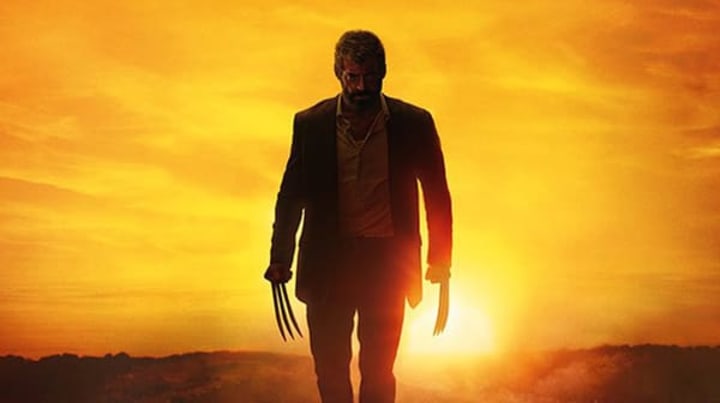
[Credit: 20th Century Fox]
Picture the scene: a generally virtuous but morally conflicted hero fighting in an epic battle against dark forces which threaten the status quo. Yup, you could apply that loose description to either a cowboy western or a superhero movie, and in Logan, we have a film that is very indebted to both genres.
Set partially in sandy and barren locales, Logan even features an older Caliban (Stephen Merchant) decked out in a poncho, bandana and Stetson, as well as tense standoffs between #Wolverine and Donald Pierce (#BoydHolbrook). The starkly beige, yellow and black posters also signify the movie’s arid setting, and this feel is further emphasized by the strains of southern singer Johnny Cash in the first trailer. However, the movie does also features magic serums, robot hands and mutant clones!
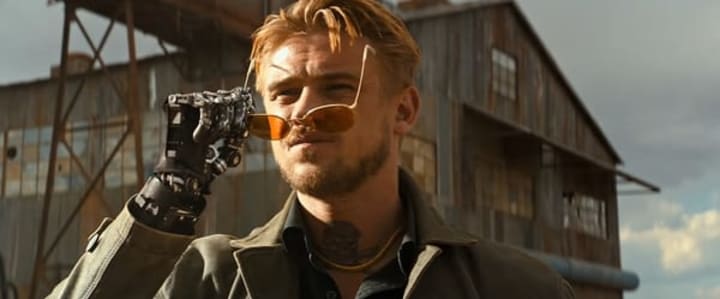
Donald Pierce showing off his mechanical appendage [Credit: 20th Century Fox]
Logan is a unique and very competent example of a movie which comfortably straddles the two genres. In retrospect, cowboys and comic books are a very fitting marriage of two filmic forms. After all, both of their respective protagonists — the caped crusader and the cowboy — originated as an American takes of British and European folk legends, such as King Arthur.
But if we bear this in mind and then look over the list of upcoming feature films, there is something very noticeable. Logan is one of six superhero films coming out in 2017 alone, yet there are very few “traditional” westerns due out. So, why is the case?
Where Did the Western Go?
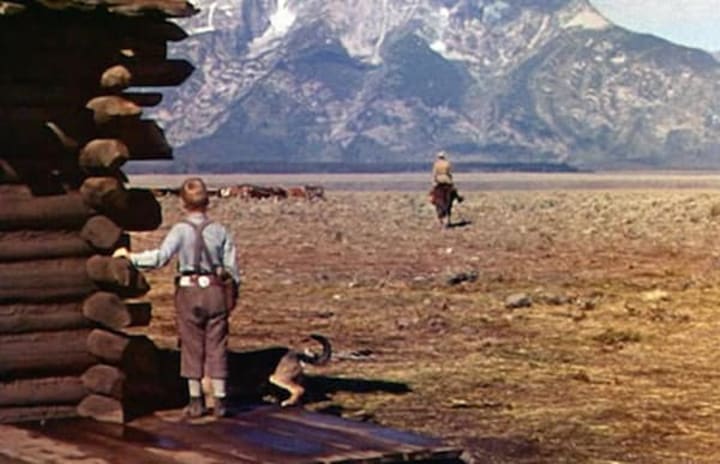
The iconic Shane - a major influence upon Logan [Credit: Paramount]
The lack of western movies in Hollywood is no new thing. Let’s face it; can you name a western movie that was a prominent success in the last ten years? There are a handful of notable exceptions — such as True Grit, Cowboys & Aliens or Django Unchained — but the number is very limited.
It wasn’t always the case; they flourished from the 1940s through to the 1960s with stars like John Wayne and James Stewart. But their success seemed to be tied to the old studio system in Hollywood, which began to collapse as time went on. Sergio Leone populated Spaghetti westerns such as Once Upon a Time in the West, but this kind of film, along with the sub-genre of “revisionist” westerns, highlights the current problems with producing these kinds of films.
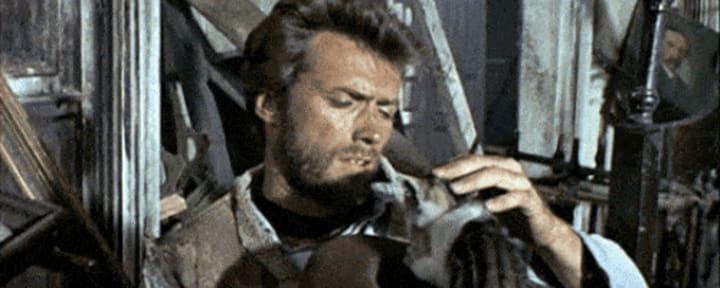
Clint Eastwood in The Good, the Bad and the Ugly [Credit: PEA]
Traditionally, the Western focused on a nostalgic and idealized view of a "simpler and more civilized time", which doesn’t fit with modern attitudes about the wild, wild west. Let’s face it, life in the frontier was probably pretty rough, wasn’t it? Certainly, this realization can be seen in revisionist westerns or “Anti-westerns”, where the characters and their surroundings are painted with darker, more ambiguous shades, such as in McCabe & Mrs. Miller, and Unforgiven. Certainly, audiences were shocked to see the usually heroic Henry Fonda as a villainous cowboy in Once Upon a Time in the West.
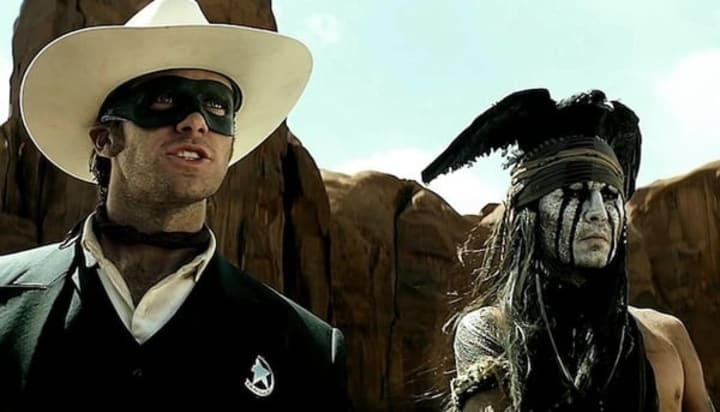
Armie Hammer's Lone Ranger alongside Johnny Depp's problematic portrayal of Tonto[Credit: Disney]
Plus, the Western genre’s somewhat sugar-coated view of the past is very jarring with the brutal discrimination of Native Americans at that time. As audiences have begun to learn more and more about the darker side to the “conquering of the west,” making a film about cowboys and Indians becomes a thorny prospect. That’s not to say that some films — such as The Lone Ranger reboot — haven’t attempted to confront this harsher reality. Yet with #JohnnyDepp’s controversial casting and Tonto’s contradictory portrayal, The Lone Ranger proves what treacherous ground you stand on if you try to marry the racial stereotypes of the past with the escapist leanings of Hollywood movies.
Certainly, Western TV shows and movies continue to be released, but they no longer take the same shape as before. Plus as box-office failure of The Lone Ranger proves, they don’t have the same sort of power or popularity they once did.
A Fresh Frontier
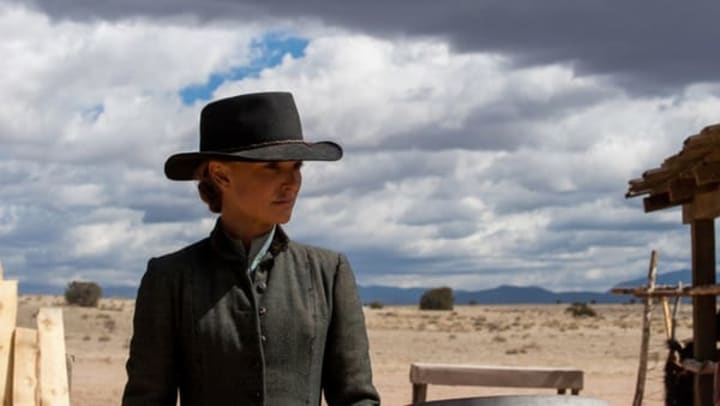
Natalie Portman in the female-focused western Jane Got a Gun [Credit: The Weinstein Company]
Slowly but surely, filmmakers have begun to tackle the thorny and problematic aspects of the Western by throwing out the template and telling other stories. We can see this approach through Brokeback Mountain, Django Unchained and The Homesman, where, instead of the typical white heterosexual hero, the events of each film are seen from a queer, African American and female perspective respectively. However, as decent as some of these movies are, there is still a lack of mainstream popularity or the kind of wide release that the likes of superhero movies enjoy.
This is not necessarily a bad thing though; being married to other genres and conventions is how the western has survived. The success of Deadwood and Hell on Wheels continue the genre’s success on television, but #Westworld and #Firefly have seen the western being partnered with the sci-fi genre to garner widespread popularity. This has occurred on film as well, with Cowboys & Aliens and Mad Max: Fury Road (albeit to lesser extent) marrying sci-fi with the trappings of the cowboy era.
Ultimately, this hybridization is the key to the western’s survival, as it is to the superhero genre. Innovation always keeps things fresh, and that’s where Logan comes in.
Could 'Logan' Bring Back the Western Genre?
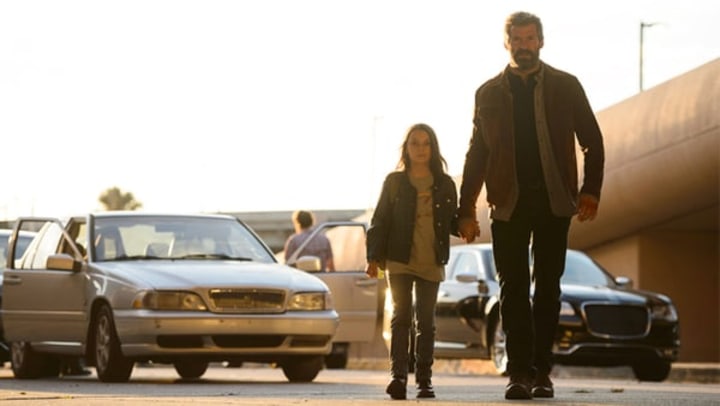
Wolverine and laura stride out together. [Credit: 20th Century Fox]
With the gradual increase in small-budget western movies, as well as the huge success of Westworld on TV, as well as 2016's Hell or High Water, Logan could certainly be considered as part of a larger revitalisation of the western. Indeed, an adaptation of Stephen King's fantasy-western, The Dark Tower, is due out later this year with #IdrisElba and #MatthewMcConaghey in the lead roles, which is further evidence that the fedoras and gunslingers of old are creeping back onto our screens.
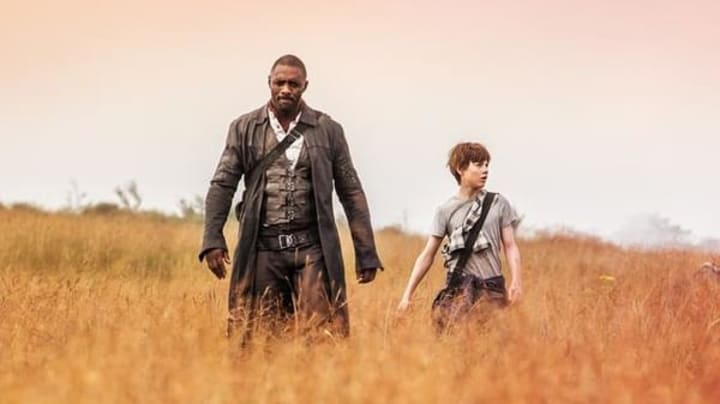
Idris Elba as the Gunslinger [Credit: Columbia Pictures]
Logan's huge financial success may very well inspire studio execs into commissioning more films set in the frontier. #Deadpool's triumph at the box-office single-handedly bolstered the argument in favour of R-rated superhero movies, which means that Logan could very well do the same for the western genre.
We’ve seen many times how popular film making in Hollywood is a faddish place, from the “dark and gritty” superhero trend to the spate of corridor fights. The western genre is quite specific in terms of its tone, language and mannerisms, but as Logan displays, with one eye on entertaining us and the other on cultural exploration, a nuanced, successful, blockbusting western movie is definitely possible.
About the Creator
Max Farrow
A fanatical film-watcher, hill-walker, aspiring author, freelance writer and biscuit connoisseur.
These articles first appeared on Movie Pilot between Jan 2016 and Dec 2017. Follow me on Twitter @Farrow91




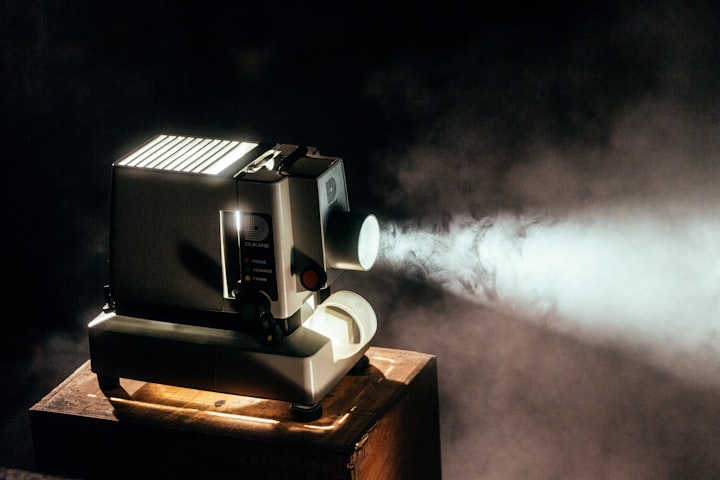

Comments
There are no comments for this story
Be the first to respond and start the conversation.